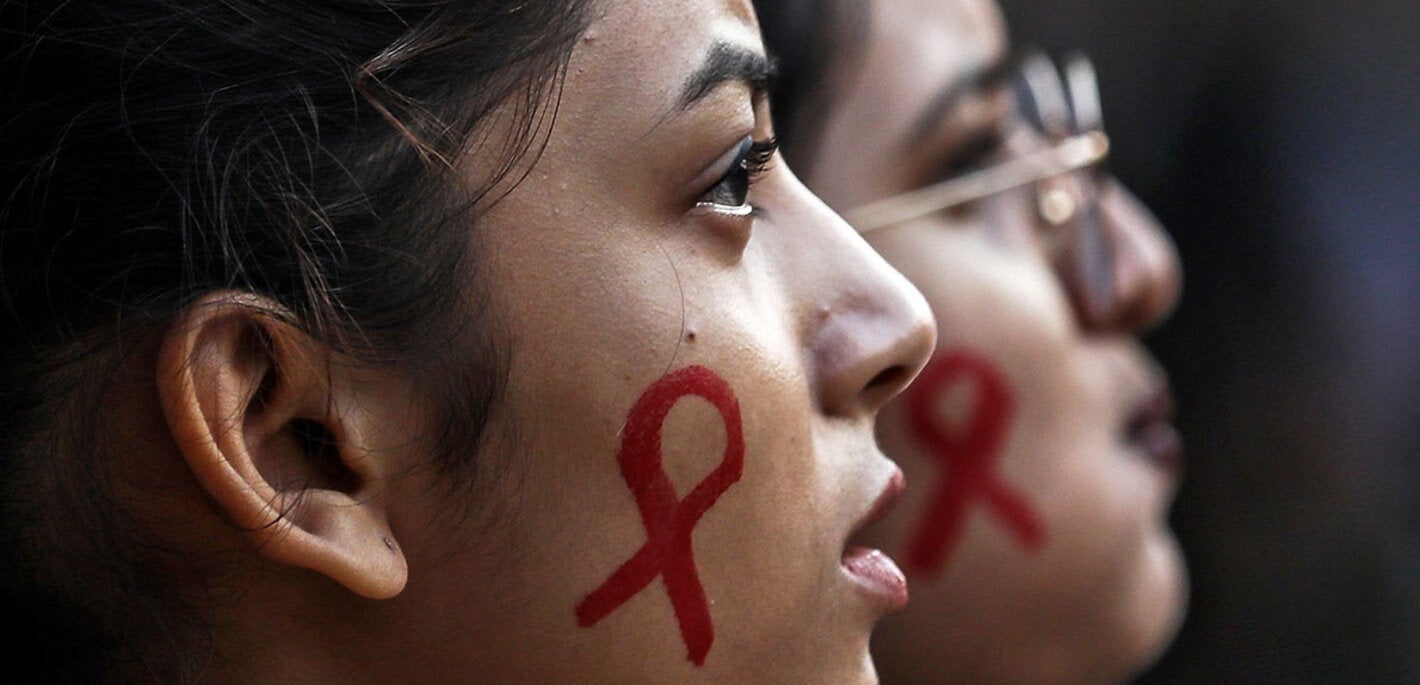
Washington, D.C. March 8, 2011 (PAHO) — Two initiatives that address gender differences to improve the prevention and treatment of HIV were cited today as "best practices" by the Pan American Health Organization/World Health Organization (PAHO/WHO).
The two projects—from Argentina and Trinidad and Tobago—were winners of the fourth annual "Best Practices that Incorporate the Perspective of Gender Equality in Health" contest and were presented at an event marking International Women's Day at PAHO headquarters in Washington, D.C. The event also included the launch of new virtual course on gender equity, diversity and human rights in health, which will be offered through PAHO's Virtual Campus of Public Health.
This year's best practices contest focused on the prevention, treatment, and care of HIV and identified projects that address the different needs and opportunities of men and women, and that try to transform men's and women's attitudes to improve health for members of both sexes.
"In recognizing these initiatives, we highlight the value and the reach of specific efforts that are making a difference on the ground in our countries to advance health equity between the sexes," said PAHO Director Mirta Roses.
The winning initiative from Argentina was "Promotion of sexual and reproductive health and prevention of HIV/AIDS in adolescents living in marginal areas of Buenos Aires." It focuses on youths living in poverty, those with HIV, migrants, and indigenous youths, and seeks to transform the practices and attitudes of adolescents as well as health workers about gender roles and the right to good sexual and reproductive health.
Angeles Velazquez, who accepted the award for the initiative, said its special areas of emphasis include empowering women and increasing their participation, challenging stereotypes and gender roles that perpetuate gender inequality, increasing condom use, and using culture and entertainment opportunities to promote health. The project also uses youth networks such as the Network of United Latin American Youth in Response to HIV (ULY), to promote health and reduce stigma.
The winning project from Trinidad and Tobago was "Prevention in discordant HIV-positive couples," carried out by the Tobago Health Promotion Clinic with support from PAHO. The program provides counseling and treatment for couples in which only one member is HIV-positive. Raymond Noel, medical director, said the clinic uses specific strategies to deal with women and men, individuals and couples, and addresses problems including unequal power relations between the sexes, the HIV "blame game" that often leads to gender violence, accidental pregnancy, and HIV risk factors related to gender disparities. The program's counseling encourages both members of discordant couples to promote healthy practices including safe sex and adherence to antiretroviral treatment.
In a special panel discussion on gender and HIV, Cesar Nuñez, regional director for Latin America of UNAIDS, noted that some 7,000 people around the world become newly infected with HIV every day. He said it was important to address the special needs and vulnerabilities of women and adolescent girls, as well as other vulnerable groups such as transsexuals and sex workers, in efforts to prevent and treat HIV.
Daniela Ligiero, senior gender advisor in the Office of the U.S. Global AIDS Coordinator of the U.S. State Department, said that much progress has been made in the area of gender and HIV, but "not enough has been done to put women and girls at the center of the HIV response globally." She cited the need for more attention to gender-based violence and the needs of adolescent and pre-adolescent girls. She also urged better monitoring of programs to determine which interventions work well and which ones do not.
Mercedes Kremenetzky, senior gender specialist for the Inter-American Commission of Women (CIM), described a pilot project supported by PAHO and CIM that has developed protocols on comprehensive care in cases of HIV infection or violence, for use by first responders. She said the protocols will be shared with member states of PAHO and the Organization of American States (OAS), "saving resources and increasing the benefits for women."
In a recorded message, PAHO Director Mirta Roses announced the launch of the new Gender and Health Virtual Course, which will teach students from government, public health institutions, and nongovernmental organizations how to integrate a gender equality perspective into health policies and projects. The 19-week course will be offered first in five countries: Bolivia, Guatemala, Honduras, Nicaragua and Paraguay.
The "Best Practices that Incorporate the Perspective of Gender Equality in Health" contest was established by PAHO in 2008 to recognize and promote experiences that incorporate a gender perspective and thereby contribute to efficiency, access and equity in policies, programs and health services. This year's contest received 42 applications from 16 countries of Latin America and the Caribbean.
"Here at PAHO, we believe that gender equality must be a top priority if we are to advance toward a more equitable world, with health and development for all," said PAHO Assistant Director Socorro Gross.
Today's International Women's Day observance also included the opening of the photography exhibit Motherhood, which features photos by Brú Rovira of mothers and babies from different parts of the world. Sponsored by Spain's La Caixa Foundation, the exhibit is being promoted as part of the multi-agency Safe Motherhood Initiative, which seeks to reduce maternal mortality in Latin America and the Caribbean.
PAHO was established in 1902 and is the world's oldest public health organization. It works with all the countries of the Americas to improve the health and quality of life of the people of the Americas and serves as the Regional Office for the Americas of the World Health Organization (WHO).



